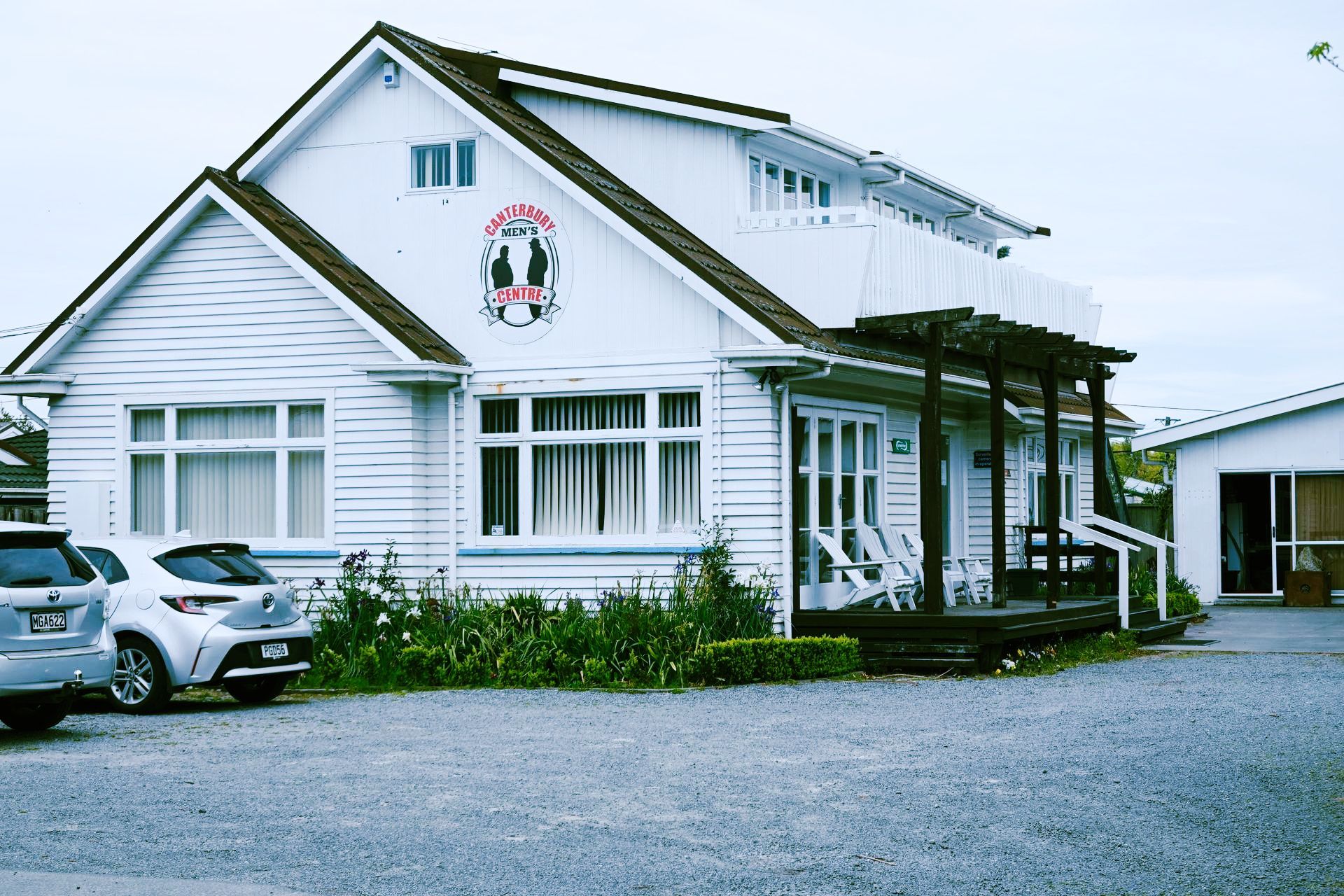ACC Counselling & Therapy Provider Christchurch
Anyone who has experienced sexual abuse or assault in New Zealand, including visitors to the country, can get help from us.
We may also be able to help if you're a New Zealand resident and have experienced sexual assault or abuse while travelling overseas.
If you're not sure if this includes you, we encourage you to still seek support. If it turns out that you're not eligible for help, your first counselling sessions will still be free and we can help you to find other help.
There is help available through the Male survivors Canterbury who meet at a seperate building at 21,Marshland Road Shirley Christchurch click here to learn more.
Talking with a counsellor or therapist can help you understand what's going on and look at practical ways to deal with it.
It doesn't matter if the event happened recently or a long time ago. You don't need to have told anyone or have reported it to the Police.
There's support available when you're ready.

ACC Family & Peer Support Survivors Therapy Counselling

There's support available for your family and whānau.
This includes friends, parents, spouses, partners, siblings, flatmates and any other people supporting you.
They can get support sessions to help:
- educate them about the effects of sexual abuse and assault
- process what's happened
- identify coping strategies
- work out ways to deal with younger clients' behavioural changes.
Your therapist will work with you to identify what support your family and whānau may need.
They'll only be involved if you want them to be.

Book a consultation
We will get back to you as soon as possible
Please try again later
What To Expect From Survivors Therapy & Support
The therapeutic process is highly individualised, with the survivor's journey being tailored to their unique needs.
Survivors may require short-term interventions, while others may benefit from longer-term therapy.
Your therapist will collaborate with you to evaluate the level and type of support that best suits your requirements, including exploring the most suitable options for you and your whānau.
Session Format and Duration: Typically, therapy sessions are conducted on a weekly basis, lasting for about an hour. However, the frequency of sessions can be adjusted based on mutual agreement between you and your therapist.
Geographic Considerations: Depending on your location, you may need to travel to access a therapist nearby. We may offer support for some of your travel expenses, and we encourage you to address this during your initial discussions with us.
Online Alternatives: If travel is impractical or presents challenges, therapy sessions can be conducted online via platforms like Zoom or Microsoft Teams, as opposed to face-to-face.
However, this format will only be adopted if it is deemed suitable by your therapist and if you provide consent for therapy to be delivered in this manner.
Survivors Therapy Progression Journey
Initial Engagement: Your ACC-funded therapy journey comprises several distinct stages.
The first two sessions are referred to as 'Getting Started.' These initial sessions are primarily geared towards establishing a connection with your therapist and determining if they are the right match for your needs.
If you haven't previously engaged with a therapist, your therapist will inform us of your engagement, and they will file a claim on your behalf.
During this period, you may receive a call from us. If, at any point, you feel that your therapist isn't the right fit, you have the option to seek another therapist.
Early Planning Steps:
The 'Early Planning' stage spans the following four sessions. It's a crucial juncture for you and your therapist to deliberate on the most suitable treatment path and identify potential needs and supports.
Support Considerations:
During this phase, the discussion may encompass various types of support, including social work, cultural assistance, and whānau support hours.
-
Learn More
Treatment Path Report:
Your therapist will create a comprehensive report outlining the recommended treatment path and the essential support providers. Before submitting it to us, they will discuss this report with you.
Short-Term Intervention:
One possible treatment path your therapist may propose is 'Support to Wellbeing (Short Term).' This recommendation is made if your therapist believes that a brief intervention of up to eight hours of therapy can effectively address your treatment needs and goals.
Additional Support:
This option may also include supplementary supports, such as social work, cultural support, and whānau support hours.
Long-Term Therapy Assessment:
If your therapist deems that long-term therapy would be more beneficial, you will undergo a 'Supported Assessment.'
This assessment will be conducted by a qualified assessor, who may not be your therapist.
Its purpose is to evaluate coverage for a mental injury resulting from sexual abuse.
Continued Support:
Throughout this period, you can continue to access support from your therapist.
We will provide ten therapy sessions and six hours with the qualified assessor to ensure the assessment proceeds at a suitable pace.
Guidance and Consent:
Your therapist will provide guidance, prepare you, and support you throughout the assessment process.
Your consent will be obtained before collecting medical information for the assessment.
Decision Timeline:
From the time your claim is lodged, we have a nine-month period to determine if your injury can be covered.
Rest assured, we will continue to support you until a decision is reached.
Detailed Explanations:
Your therapist will offer more detailed explanations, and we will keep you updated at every step during this process.
Contact Canterbury Mens Centre For Help Click Here
FAQ About The ACC Therapy For Survivors
-
What happens when therapy starts?
The initial sessions will primarily concentrate on establishing a rapport with your therapist and determining whether they are a suitable match for your needs.
For certain individuals, just a few sessions may suffice. Should you realize that you require ongoing assistance, your therapist will collaborate with you to evaluate the extent and nature of the support required.
You and your therapist will jointly explore the most suitable support options for both you and your family and whānau.
-
Can I change therapists?
Following your initial session or a few sessions, you may discover that your current therapist is not the ideal match for your needs.
If, at any point, you decide that you would like to seek a new therapist better suited to your situation, you have the flexibility to make that choice.
Therapists acknowledge that sometimes the connection between an individual and their therapist may not be the right fit.
It's essential for your well-being that you receive support from a therapist who is a good match for you. You can transition to a new therapist by:
You are requesting your current therapist or the organisation you've chosen to connect you with a different therapist.
Contact Canterbury Mens Centre Now Click Here
-
What happens after your ACC claim is approved?
Support to Wellbeing:
Should your claim be accepted, you will be eligible for up to 48 hours of approved therapy every twelve months, a phase we refer to as 'Support to Wellbeing.'
During this period, your therapist will work closely with you to provide the necessary and suitable supports to help you reach your treatment goals.
Progress Updates:
Your provider will keep us informed of your progress and might extend an invitation for you to participate in case conference updates with us.
Extending Therapy:
As your approved therapy hours approach completion, if there is a need for additional sessions, your therapist will compile a Wellbeing plan progress report.
This report will document your advancements toward your goals. It may also introduce new objectives, and if necessary, request more therapy sessions to assist you in accomplishing these goals.
Contact Canterbury Mens Centre Click here
-
How will you help me maintaining my wellbeing?
Maintaining Wellbeing: After concluding your therapy, the 'Maintaining Wellbeing' stage comes into play.
Ongoing Support: We will remain committed to your well-being by financially supporting your provider for four sessions each year over the following three years.
These sessions are designed to assist you in managing any difficult periods without the necessity of starting the entire engagement process anew.
Future Support: If you find yourself in need of further assistance beyond this period or at any point in the future, you can always reach out to us for more comprehensive support.
Contact Canterbury Mens Centre Click here
Location
The Canterbury Men's Centre
21 Marshland Road
Shirley
Christchurch
8064
Text Message ONLY: 022 302 4966
Menu
Addington | Bishopdale | Cashmere | Fendalton | Halswell | Hornby | Ilam | Merivale | Papanui | Riccarton | St Albans | Sydenham
© All Rights Reserved | The Canterbury Men's Centre | Recommended Businesses | Powered by KingFisher Digital


